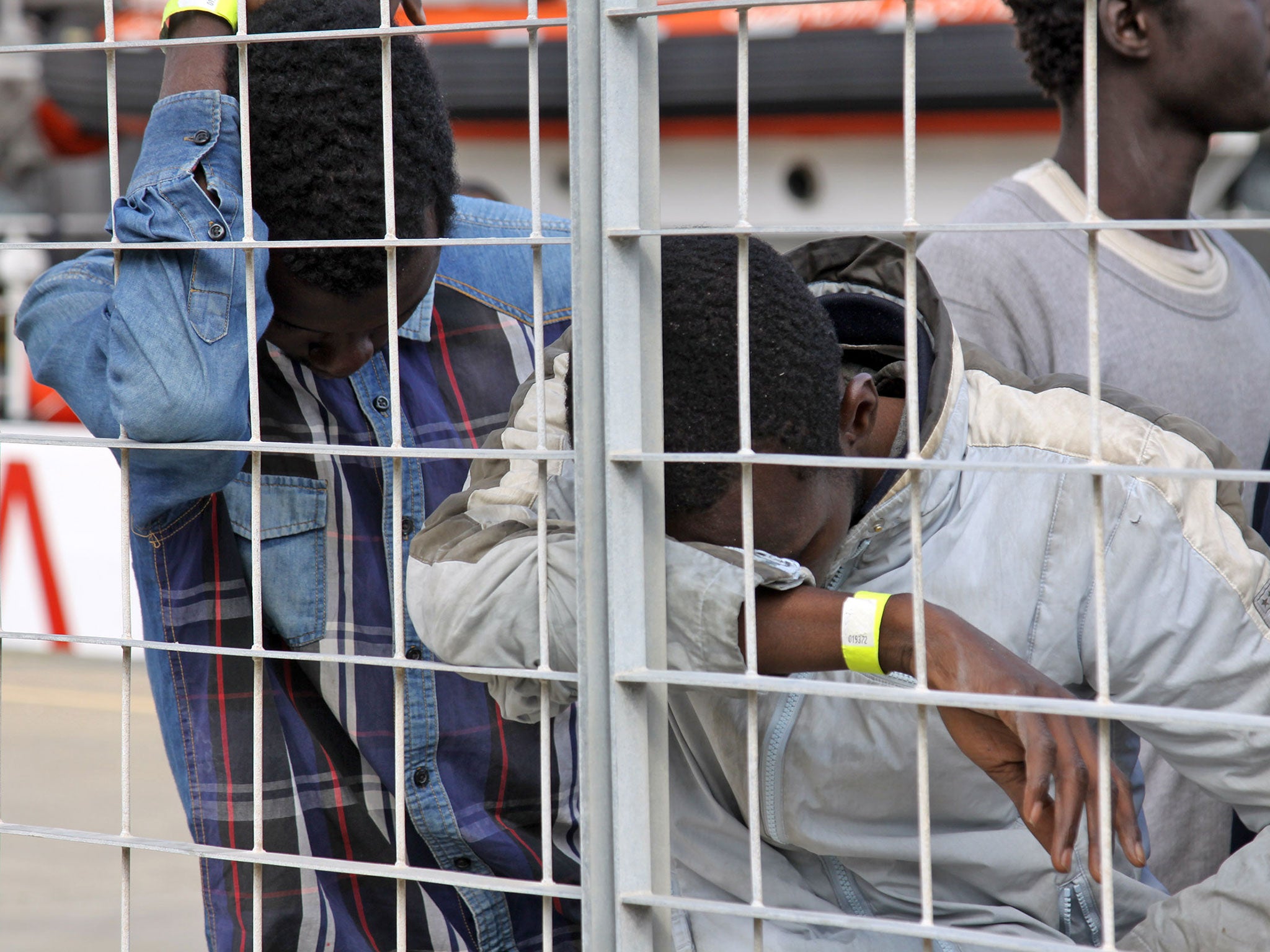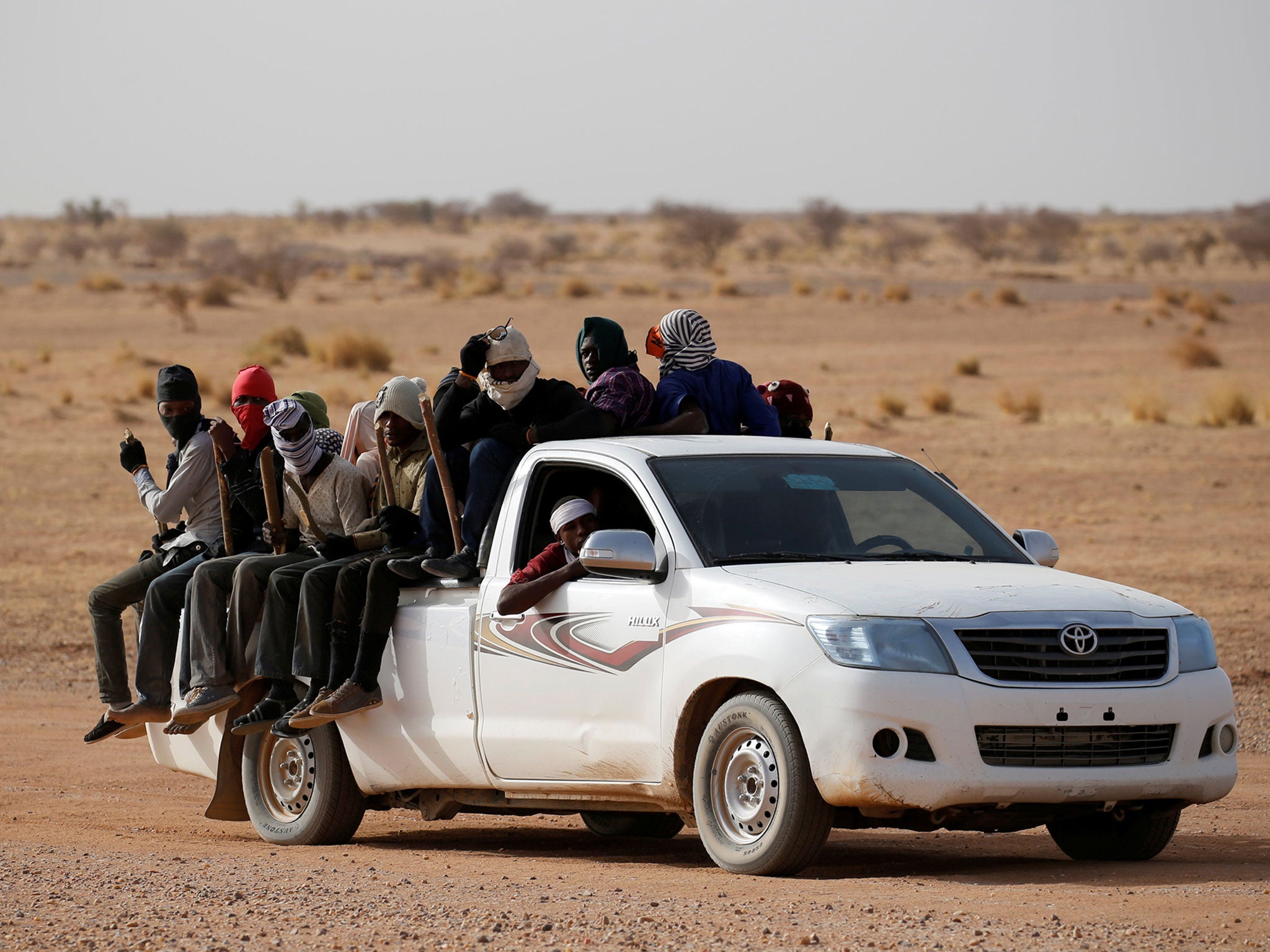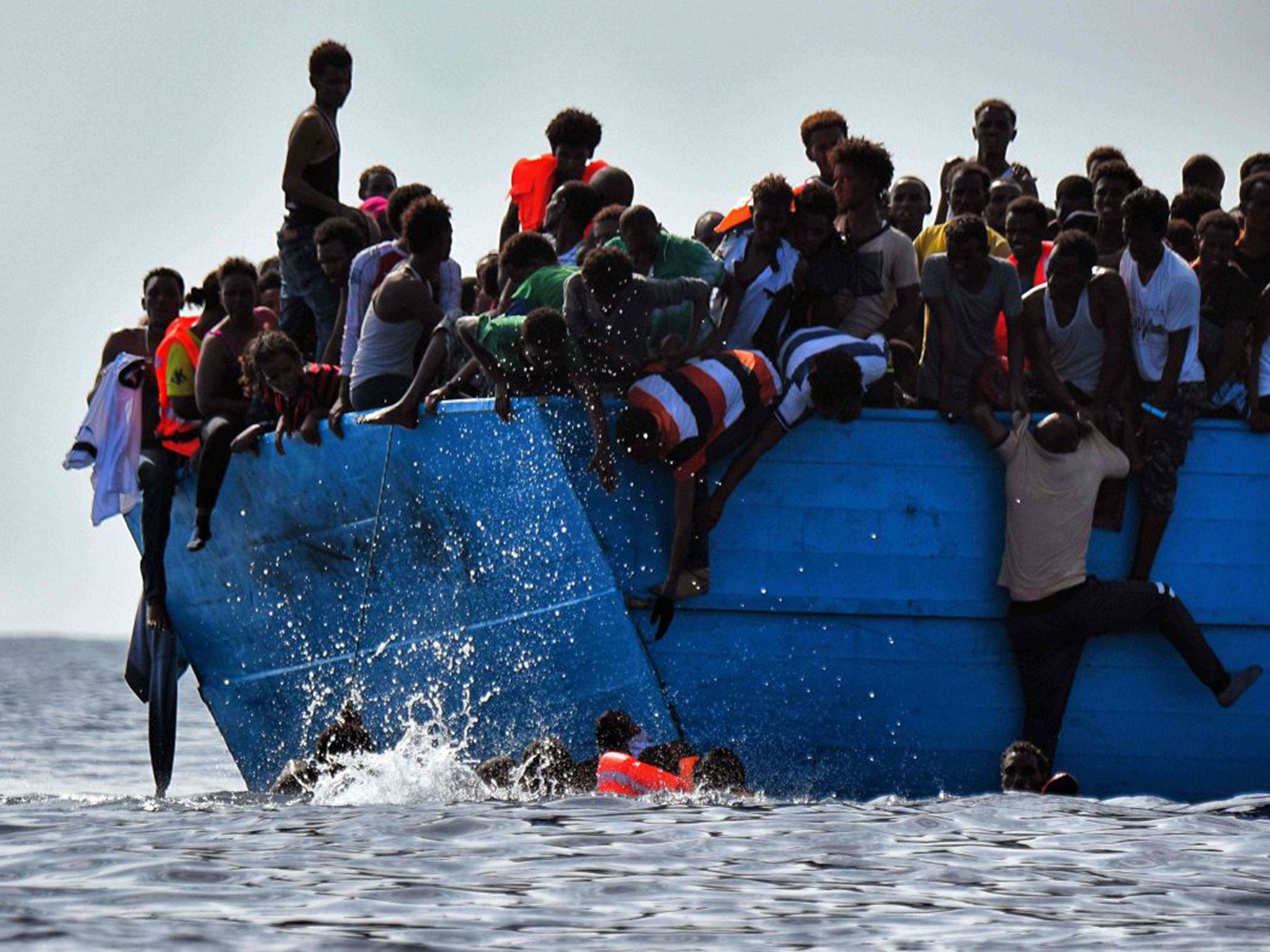Refugees being forced into 'modern slavery' by people traffickers before attempting deadly journey to Europe
New report finds over 70 per cent of migrants crossing Central Mediterranean being exploited and abused

Refugees and migrants risking their lives in desperate attempts to reach Europe are being forced into “modern slavery” by ruthless people traffickers who are imprisoning, torturing and raping those they exploit.
A new report has revealed the shocking scale of abuse by criminal gangs who prey on asylum seekers travelling across Africa – most commonly in Libya, which has become the main launching point for smugglers’ boats in the chaos following its civil war.
Research by the International Organisation for Migration (IOM) found that almost three quarters of migrants attempting to cross the Central Mediterranean have experienced exploitation and human trafficking.
The group said practices occurring with “alarming scare and frequency” included forced labour, imprisonment, kidnapping, ransom and physical and sexual abuse.

Dipti Pardeshi, chief of mission for IOM UK, said UK Anti-Slavery Day [Tuesday] was a poignant time to examine the widespread issue and look at what can be done.
“We need to remember that regardless of the reasons that people move, or their background, they deserve protection,” she said.
Almost half of the men, women and children rescued in the Central Mediterranean said they had been imprisoned for ransom during their journey towards Europe, most commonly in Libya.
The research found migrants journeying via Libya are between seven and 10 times more likely to be abused than those reaching Europe from Turkey, with the likelihood of exploitation rising with the time they spend in transit at the mercy of smugglers.
Growing numbers of refugees have been using the more treacherous route since the EU-Turkey deal aimed to prevent crossings over the Aegean Sea came into effect earlier this year.
The IOM’s findings were based on almost 9,000 surveys taken by refugees travelling to Europe via sea, in the first large-scale attempt to quantify the horrors long reported by refugees reaching Italy.
Rescue workers with Médecins Sans Frontières (MSF) have been recording accounts of the abuses on their rescue ships, which are picking up refugees packed onto overcrowded boats launched from Libya.
The group said Libya’s degeneration into chaos following the British-backed intervention to oust Muammar Gaddafi in the country’s civil war has left rival armed groups, criminal gangs and Isis vying for power.
Armed smugglers are known to frequently detain migrants in squalid conditions, demanding ransoms or forcing them into labour, beating and torturing any who cannot pay.
Menethueos*, a 23-year-old Eritrean man who fled torture and conscription in his home country, said he was kidnapped and held for four months in Libya, with his captors demanding $2,000 (£1,600) for his release.
“Many times they beat and tortured me, but I didn’t have any family to call,” he said.
“They beat you when you are lying on the ground, with whatever they have in front of them. If they have an iron bar, they use it.

“They use a lot of things. They hit you with the back of the gun. Whatever they like. They tie your hands together and your legs together and you lie on your stomach and they leave you there, day and night.”
Some refugees sew money into their clothes in preparation for the ordeal, while others resort to giving up contact details for family and friends in their home countries.
Others told MSF they were shuttled between middlemen and “brokers” for forced labour on construction sites or farms, and were locked up in warehouses at night, until they paid their way out of captivity.
A Somali man said he was “sold” by a Sudanese trafficker to a Libyan man for $2,000 (£1,600) to carry out agricultural labour, and saw several of his fellow captives die in the detention centre where they were held at night.
Lami, a 26-year-old Senegalese man, said he watched another man slowly die from illness, adding: “In Libya, if you don’t have money to pay back the people that assault you, then they beat you. I prefer to die at sea.”
Women are frequently sexually abused or forced into prostitution by traffickers, with many arriving in Italy pregnant with their abusers’ children.
Maria* a Cameroonian woman rescued from a migrant ship in June, was abducted by four armed men who forced her into prostitution and raped her repeatedly.

“Selling people is normal in Libya,” the 26-year-old said. “Everybody has a gun in Libya – children too.
“I spent three and a half months in Libya, in two different houses. One day a girl died in front of us. She was sick, no food, and no water.”
The reward for those who work or pay their way out of captivity is to be loaded onto a boat over the Central Mediterranean – now the most dangerous sea crossing in the world.
More than 3,100 migrants have died on the route this year – drowning or suffocating in overcrowded holds – putting 2016 on course to be the deadliest ever year for refugees trying to reach Europe.
Those who survive the journey often arrive injured or scarred. A doctor working at a treatment centre in Sicily previously told The Independent she had found bullets still lodged in refugees’ bodies, bones broken from beatings, internal injuries from rapes and scars from lashing.
For others the scars are harder to spot – more than half of asylum seekers arriving in Italy are diagnosed with mental health issues, mostly triggered by trauma in their home countries or during their journeys to Europe.

Almost 320,000 asylum seekers have arrived by sea this year, with the majority travelling over the Central Mediterranean after the controversial EU-Turkey deal came into effect in March, seeing anyone arriving on Greek islands detained under threat of deportation.
Around 1,800 refugees have reached Greece this month, compared to almost 13,000 in Italy, where most arrivals are from Nigeria, Eritrea, Sudan, Gambia, the Ivory Coast and other African nations.
Kevin Hyland OBE, the UK’s independent Anti-Slavery Commissioner, said urgent action was needed to protect refugees.
“The migration crisis is clearly being used by human trafficking networks to target and brutally exploit the most vulnerable,” he added.
“I believe that a key focus for the UK and other governments must include collaborating with partners to prioritise safeguarding against the risks of modern slavery as part of the response to the migration and refugee crisis, in addition to scaling up targeted frontline anti-trafficking safeguarding and law enforcement operations.”
A Home Office spokesperson said: “We have made an historic £33.5m investment in modern slavery from our aid budget focused on high-risk countries, where we know victims are regularly trafficked to the UK.”
*Names have been changed to protect identities
Join our commenting forum
Join thought-provoking conversations, follow other Independent readers and see their replies
Comments
Bookmark popover
Removed from bookmarks